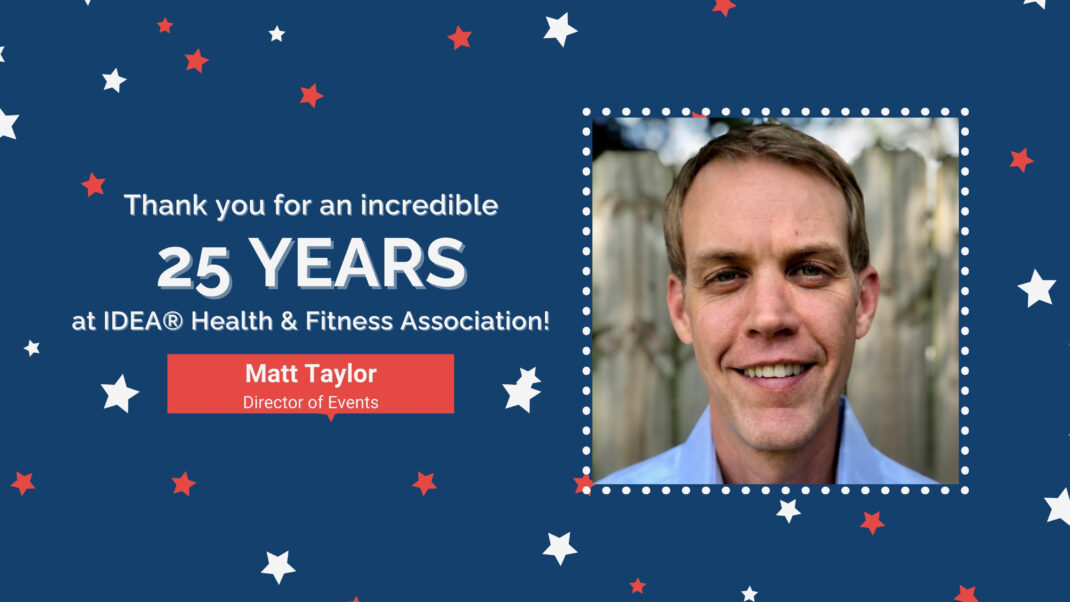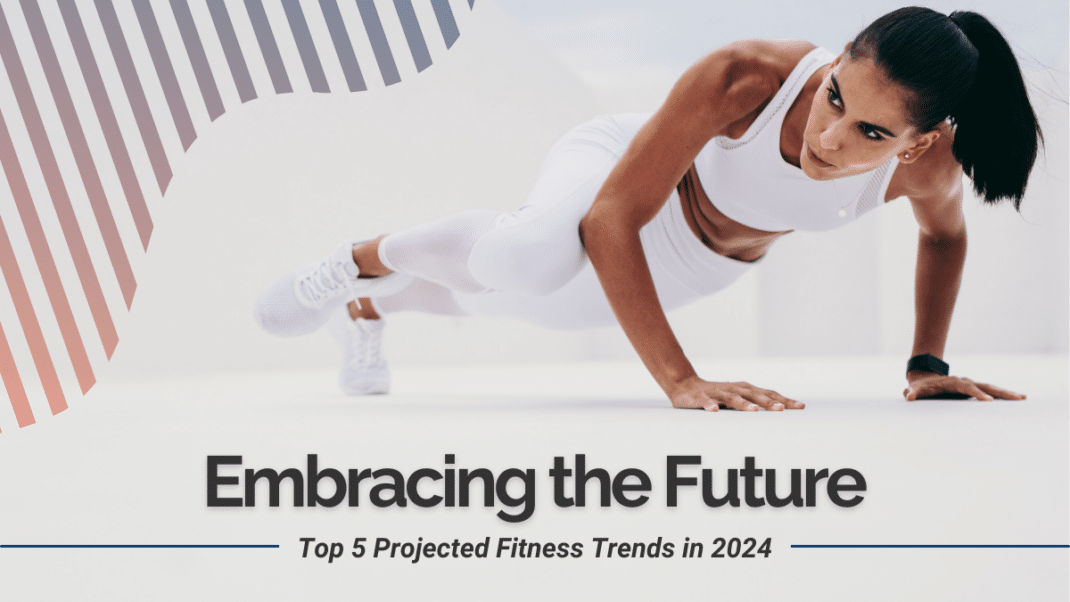The Pursuit of Higher Education
What Fitness Professionals Should Know About Going Back to School in the 21st Century

“I want to take [my education] to the next level and do some type of study in fitness,” said the Facebook message from IDEA member Melissa Spraul, a group fitness instructor in Los Angeles. Her passion for fitness is clear from all the workshops and conventions she attends, but she wonders how to go about starting her academic career. “We have a lot of community colleges and universities out here, but I’m a little overwhelmed,” she wrote. “Can you provide any insight?”
Eight years ago I was in a similar position: part-time group fitness instructor with a full-time job in an unrelated field. I had wanted to change my professional direction but went back and forth on the idea of returning to school. Excuses abounded: “I won’t be able to afford it,” “it’s been so long since I’ve been in school” and “it will take months to complete all prerequisites (since my B.A. was in media arts).” Had I had more insight, I may not have delayed my enrollment into graduate school, which is what afforded me my career opportunities.
Whether a fitness professional goes back to school for a single course or an entire degree program, the thought of returning to college or university can be daunting. There are many factors to consider beyond choosing a school or field of study, such as the impacts on client training schedules, work-family balance and personal finances.
This article compiles the recommendations of college and university faculty, career counselors and fellow fitness professionals (some sharing their own “back-to-school” stories) in hopes of highlighting today’s academic landscape and learning environments. It is not meant to be a “how-to” guide to graduate schools or choosing a degree program, but it can be an informative resource to encourage fitness professionals to explore educational opportunities in the academic sector.
As you read on, determine if the decision to pursue an advanced degree is for you and discover how to leverage your professional skills to help finance and market your education.
The Decision to Go Back to School
Formal education can give fitness professionals a competitive edge in advancing their careers. According to the U.S. Bureau of Labor Statistics, “people with degrees in fitness-related subjects will have better opportunities because clients prefer to work with people they perceive as higher-quality trainers.” (BLS.gov, 2010)
“Make no mistake, a degree is a lot of work,” says Jason Karp, PhD, an exercise physiologist, running coach and author of the practical guide How to Survive Your PhD. Karp notes that people pursue degrees for various reasons—whether for status and acclaim or the pursuit of knowledge and research—but he stresses that “you have to really know what you want to accomplish in your career and then decide if a degree is the way to get there. If it’s speaking at conferences, writing books and articles, then yes, a degree may give you a certain level of authority.”
The number of adult learners or non-traditional students in school is increasing. By 2019, enrollment in post-secondary, degree-granting institutions will go up by 28% for students age 25-34 and 22% for those 35 and older (NCES, 2009). But before committing to hours of lectures, labs and late-night study sessions, consider mapping out your professional P.A.T.H. to see if school is right for you:
P: Preview Your Professional Career
Visualize yourself two to five years in your ideal job. What credentials are needed to achieve the next level of work (e.g. a physical education or an exercise science degree)? Which skills are essential to furthering your research? Check job boards and career portals to learn what specializations are required to help you qualify for those ideal positions.
“Before I started my postdoctorate degree I decided that I wanted to be an expert in the area of endurance physiology,” Karp says. “When people wanted to talk to the best running coaches in America, I wanted to be the one in those conversations. I knew the degree would open those doors for me.”
A: Access Key People in Your Field of Interest
Find professionals and professors in your area of interest and begin a dialogue. How did they get into their field? What kinds of courses do they teach or topics do they study—do those interest you? At the very least, these conversations can offer insights into other career paths. At most, they can refine your search for ideal academic programs or institutions. Check college websites for detailed descriptions of programs and faculty.
T: Take Inventory of Experiences and Certifications
Fitness professionals may not have to start their academic careers from scratch, even if previous experiences or undergraduate degrees were in unrelated fields. Ask academic advisors how industry certifications can count toward a degree program, certificate series or course prerequisites. Your field experiences can help frame your studies to meet real-world applications.
H: Holistic Approach to Change
Weigh the pros and cons of college and its potential impact in all areas of life. Develop a plan that minimizes the effects of going back to school and maximize the outcomes of your education. Do you have support people in place? Is there a financial plan? What commitments can you cancel or postpone to make room for school?
“Education is definitely costly, both financially and emotionally,” says Marvin Chapman, a personal trainer and physical therapist paying for school with part-time work and student loans.. Both he and his wife are students and have decided to put ‘life’ goals on hold to complete their education. “We do struggle financially and are often overwhelmed with our workloads, yet we encourage each other and press onward.” Chapman is pursuing his master’s in exercise physiology at University of Georgia, Athens.
Choosing the Right Learning Environment
Fitness professionals have a lot of flexibility in choosing the learning environments that best suit their budgets, lifestyles and learning preferences. The questions below clarify the learning options as trainers and fitness instructors develop a timeline for their academic plans.
Should I Attend a Traditional University or a Community College?
The main differences between universities and colleges are typically cost, location and program offerings. Attending a community college costs approximately one-third less than a university (NCES, 2010) and you can often find a campus within an hour’s drive from your home (AACC, 2003). Community colleges offer a range of classes, professional certificates and associate’s degrees that help build foundational knowledge, whereas a university may go further to include specialized seminars and advanced-degree programs with greater research opportunities.
“For fitness professionals who want to expand their knowledge or learn new skills, community colleges can provide a place to explore new subject areas, connect more intimately with faculty and still be affordable,” says Greg Mahadeen, adjunct faculty in the health science department at Brookdale Community College in Tinton Falls, New Jersey. He encourages personal trainers to take courses in nutrition, business, marketing, writing and public speaking to help bring value to their client services. For those who maintain their certifications and attend workshops and conventions, an associate’s degree in exercise science, for instance, may be redundant, he said. In this case, fitness professionals may prefer upper-division courses at a university.
Should I Enroll as a Non-Degree-Seeking Student Until I Decide to Pursue a Degree?
For those testing the academic waters, the costs of college applications can be a major deterrent (entrance exams, submission fees, etc.). But enrolling as a non-degree-seeking student can alleviate some immediate upfront costs so you can register for the undergraduate or graduate courses that interest you. If you decide to transition into a degree-seeking student, most institutions will apply a portion of course credits towards their programs. Bear in mind that non-degree-seeking students may not get priority during registration or qualify for financial aid. Even if you decide a degree path is not for you, remember you can still apply to earn continuing-education credits for college-level courses.
Should I Consider Online Courses over On-Campus Courses, Given my Work Schedule?
In 2007, about 66% of all institutions (two-year and four-year, public and private) offered distance-education courses (NCES, 2008), a trend that is expected to grow given the student demand and advancements in instructional technologies (Chronicle of Higher Education, 2010). Online courses may displace the fixed time and location of a class, but convenience should not be the sole consideration. Like face-to-face classes, Web-based courses vary greatly in design and utilize multiple instructional strategies (Cook, 2007). But if you have a busy training schedule, consider taking hybrid or blended courses, which combine the online experience with on-site instruction.
James Camastra, a personal trainer in New York, received his master’s degree in exercise science from California University of Pennsylvania’s Global Online program. “I chose the online route because my business was too successful to warrant the time to physically go to class.” The online environment allowed him to take his education at an individual pace so he could also facilitate the opening of his own gym.
Making the Transition from Education to Employment (Again)
The experiences gained from higher education is as much about expanding the knowledge base as it is about ensuring the academic investments “pay off” as graduates return or continue to work. How well fitness professionals utilize their campus resources may shape the way they rebrand and market their post-college careers.
College internships can help fitness professionals open doors to new prospects in the workplace. Depending on the degree program or institution, internships may be integrated into the curriculum or taken as a supplemental part of the educational experience. “Most fitness professionals have the ability to personal train, coach and teach group fitness,” says Natalie Johnson, internship coordinator and manager of Health & Lifestyle Programs at Manatee YourChoice Health Plan in Bradenton, Florida. “But they should use an internship opportunity to investigate possible areas of expertise that will make them unique as a professional in the field.”
Fitness professionals with current experience in health clubs, fitness studios and athletic training centers can transfer those skills at an internship in hospitals and medical fitness facilities, corporate organizations and resort or spa industries where the roles for fitness or wellness professionals are growing. “With healthcare reform and the Baby Boomer Generation there will be an abundance of opportunities in medical fitness over the next few years,” Johnson says, adding that internship sites often hire from current and previous employee pools.
In addition to internships, some colleges and universities sponsor small-business incubators and offer funding for innovative student start-ups. The spirit of entrepreneurship is alive on college campuses—just ask 2010 Global Student Entrepreneurship Award winner Brent Skoda, who founded College Fitness (www.collegefitness.com), a multimedia fitness-related social networking group for students, while still pursuing his undergraduate degree. Fitness professionals can capitalize on these monies, couple their efforts with fellow students and launch the next fitness product or company before graduation.
“A degree is not enough,” says Amy Adams, the Career Center director at Pepperdine University’s Sever College in Malibu, California. “Employers are looking for candidates who are not only educated, but have proven success through work experience and a willingness to grow.” Adams encourages fitness professionals to contact their institution’s career services to polish their resumes, prepare for interviews, check job postings and apply for mentorship programs. One tip she offers graduates: “Change your mindset from what you can ‘get’ from [people], to what you can ‘give’ instead.”
Fitness professionals who achieve greater levels of knowledge may increase their opportunities to educate clients, colleagues and the community through publications, presentations, speaking engagements and workshops. “After I graduate I would like share my knowledge with the trainers at [my club] in order to develop a more comprehensive group of fitness professionals,” says Karlton Meadows, who at age 40 is finishing his bachelor’s degree in sports and health sciences, dual-enrolled at American Military University and University of Tampa in Florida. “I want to see professionals intelligently train the growing number of obese children, teens, young adults and Baby Boomers so we can reverse the negative impacts of the sedentary lifestyles.” He expects to start his master’s in exercise science and health promotion in January 2012.
Many Degrees of Success
Going back to school can be a grand endeavor, regardless of age or experience. But it may not be the path for everyone. Last year personal trainer Liz DiAlto began her graduate program in exercise science at George Washington University. After three months, DiAlto transitioned to pursue a certified strength and conditioning specialist (CSCS®) certification, instead. “My passion lies in training women, not athletes, which was what my graduate program was geared towards,” says DiAlto, who now runs her own online personal training business. DiAlto is not opposed to pursuing advanced degrees, but wishes she had done more research into a program before choosing her school. Fortunately, she attributes passing her CSCS exam to some of her academic courses.
By 2019, the number of bachelor’s, master’s and postdoctoral degrees are projected to increase by 23%, 34% and 54% (NCES, 2009). Whether you return to school part-time or full-time, complete one course or an advanced degree, the decision is yours to make. I was inspired by the various career possibilities in the fitness industry once I went back to graduate school. Now I have become that exercise science faculty at the colleges advising incoming students of their possibilities.
To all fitness pros who harbor thoughts about pursuing higher ed, I hope this article provides the additional insight to further your conversations on this topic and encourages you to explore all of your academic choices.
References
Cook, D. 2007. Web-based Learning: Pros, Cons and Controversies. Clinical Medicine & Research, 7. 37–42.
Online Learning: By the Numbers. 2010. Chronicle of Higher Education http://chronicle.com/article/Online-Learning-Enrollment/125202/ (retrieved April 5, 2011)
U.S. Bureau of Labor Statistics. Occupational Outlook Handbook, 2010-11 Edition. www.bls.gov/oco/ocos296.htm (retrieved April 5, 2011)
U.S. Department of Education National Center for Education Statistics. 2009. Projections of Education Statistics to 2019, Section 5c . 6b http://nces.ed.gov/programs/projections/projections2019 (retrieved April 5, 2011)
U.S. Department of Education, National Center for Education Statistics. 2010. Digest of Education Statistics. 2009. (NCES 2010-013), Chapter 3. http://nces.ed.gov/fastfacts/display.asp?id=76 (retrieved April 5, 2011)
American Association of Community Colleges. Institutional Characteristics of Community Colleges. http://www.aacc.nche.edu/AboutCC/Trends/Pages/characteristicsofcommunitycolleges.aspx
U.S. Department of Education, National Center for Education Statistics (2008). Distance Education at Degree-Granting Postsecondary Institutions: 2006–07 (NCES 2009-044) http://nces.ed.gov/fastfacts/display.asp?id=80
Making School Financially Friendly
Most institutions offer scholarships, student loans and financial aid to offset the costs of an education. However, fitness professionals bring a unique set of skills and expertise that may come in handy when looking to lower their enrollment costs. Peg Hamlett, fitness director at the University of Idaho in Moscow, Idaho, suggests coupling the learning experience with employment in campus recreation and exercise science departments.
Join the Recreation Center Team
Take a staff position at the campus fitness center or recreation department. Most offer the standard group exercise classes and personal-training opportunities to students. “The pay is competitive or above the local average and may include benefits, such as professional growth opportunities or insurance,” Hamlett says. Pick up extra classes or clients and make efficient use of the time on campus. (Go to www.bluefishjobs.com, www.gymjob.com, or your campus job portal for postings)
Apply for Teaching Positions
Exercise science departments that offer elective courses or lower-division core classes may have adjunct teaching positions available for graduate students or qualified fitness professionals. Consider teaching a semester-long yoga class or leading an “intro to exercise science” course. These jobs are more competitive, but offer substantial pay along with some type of tuition waiver. (Go to www.higheredjobs.com or the university/college’s website for job postings)
Offer Continuing Education Programs
Some colleges have a continuing education offices or extended universities separate from any degree program or department. They tend to offer personal or professional development courses to the community at large and cover a wide range of topics. Pitch them a series of health or wellness classes or fitness workshops. Pay may be fixed or based on a percentage of attendees, but usually comes with free marketing and use of campus facilities.
“I find the best way to find a job is to visit or call the campus facility or department you are interested in working with,” Hamlett says. “Talk to them about the kinds of programming they offer, learn about their facility programs before talking about employment opportunities.” Hamlett also suggests authoring a fitness column in the campus (or local) paper or participating in health- or exercise-related research studies.
Entering the Digital Learning Space
Colleges and universities use Web-based platforms for everything from course registration to course delivery. Alisa Cooper, EdD, an instructional technologist, studies the role of technology in education and suggests that fitness professionals should have a certain level of comfort in using (and learning to use) new technologies in their classrooms. Whether you decide to take online or on-campus courses, the following tips can ensure a smooth transition into the digital learning space:
Be email savvy
Sounds obvious, but email management is important. Email is one method of correspondence between students and faculty. Know how to access campus email portal, get in the habit of checking account regularly (even that means forwarding school email to a primary account) and use proper email etiquette when addressing faculty and staff (i.e. avoid LOLs and emoticons).
Basic computer skills are a must
Get familiar with basic word-processing and presentation software, such as Microsoft Office or Google Documents. Have the proper viewers and plug-ins installed on your computer (i.e., Java, Adobe, etc.) in order to open course materials and view audio/video files. Good typing skills are also advantageous.
Have a basic grasp of social media
“More faculty are expecting students to have a basic understanding of social media as they implement more of these [Web-based] tools into their teaching,” Cooper says. Examples include blogs, wikis, YouTube, social bookmarking and Twitter. These tools can encourage digital organization of research, virtual collaboration and the ability to create dynamic multimedia projects (podcasts, videos, etc.).
Navigate the Internet for Credible Information
When it comes to finding credible sources for scholarly research, Cooper advises that “Google is not where [students] want to get sources for their academic papers.” Most school libraries offer digital access to Web-based databases of peer-reviewed journals and periodicals. Copies of articles and essays can be requested via email or viewed online. Additionally, fitness pros also have access to archived articles in IDEA’s library.
Always Have a Digital Backup Plan
Computers crash, servers go down, emails bounce, viruses attack—these are the inevitable consequences of living digitally. Create a backup plan to offset setbacks that could arise from technology failure. Have access to extra computers, know the locations and hours of campus computer labs, save assignments in multiple locations (and keep the IT helpdesk number on speed-dial!)
Additional Resources
Link here more information about fitness-specific univeristy/college curriculums.
Discover top-ranked exercise science schools at www.usnews.com/education, learn about universities with degrees in your field at www.gradschools.com, www.erudera.com or www.campusexplorer.com.
(Note: exercise science departments may also be called sport sciences, kinesiology, movement sciences, human performance, health & wellness, recreation and leisure studies, athletics or other similar variation. Some programs may fall under nursing, public health, communications or the education divisions.)
To scan the community colleges in your area, click on College Navigator at http://nces.ed.gov/collegenavigator or Community College Finder at www.aacc.nche.edu/pages/ccfinder.aspx
The site www.back2college.com has great tips on scholarships, internships and other cool tools for the returning student. Also check out Going Back to School: College Survival Strategies for Adult Students by Frank J. Bruno, PhD.
Pursuing an advanced degree? Enjoy the book Surviving Your Stupid, Stupid Decision to Go to Grad School by Adam Ruben, PhD.
Pursuing an online degree? Check out “Earning an Online Exercise Science Degree” by April Durrett (in IDEA’s online article archives).
College textbooks are expensive; save money by purchasing used ones, renting them, downloading their digital versions or selling them back at www.textbooks.com, www.UsedTextbooks.net or www.eCampus.com.
Revise your latest resume at one of the top online resume resources, www.optimalresume.com, and polish your interviewing skills with tips from “Preparing for a Job Interview” by Julie Anderson, MA (also in IDEA’s online article archives).
Biray Alsac, MS
Biray Alsac, MS, is the owner of FITTmaxx Institute, a consulting company for health organizations and fitness/wellness professionals interested in learning how to integrate Web-based tools and interactive technologies (exergames) into their programming. She holds a masterÔÇÖs degree in exercise and wellness. Certification: ACE Education provider for: ACE





